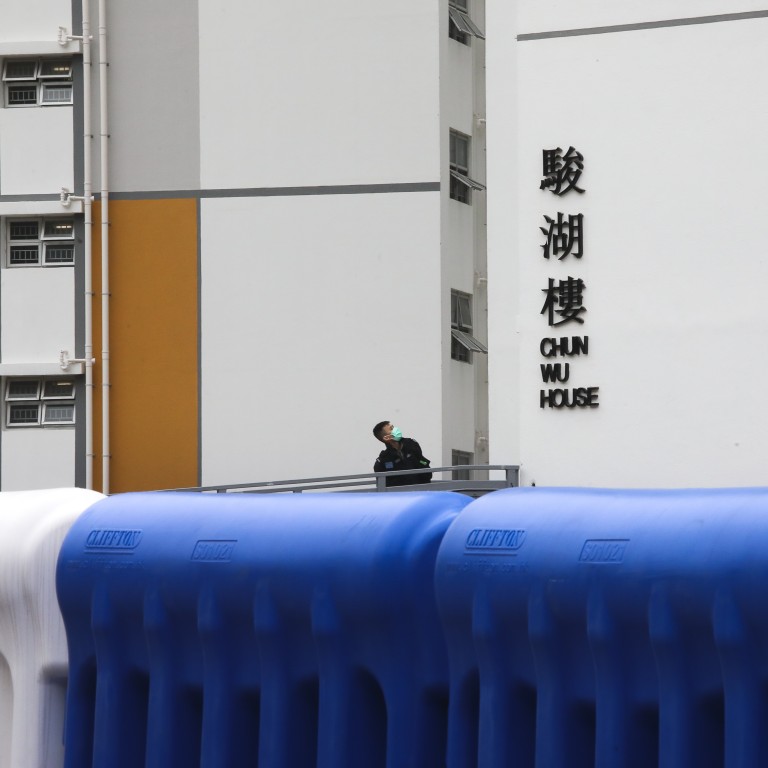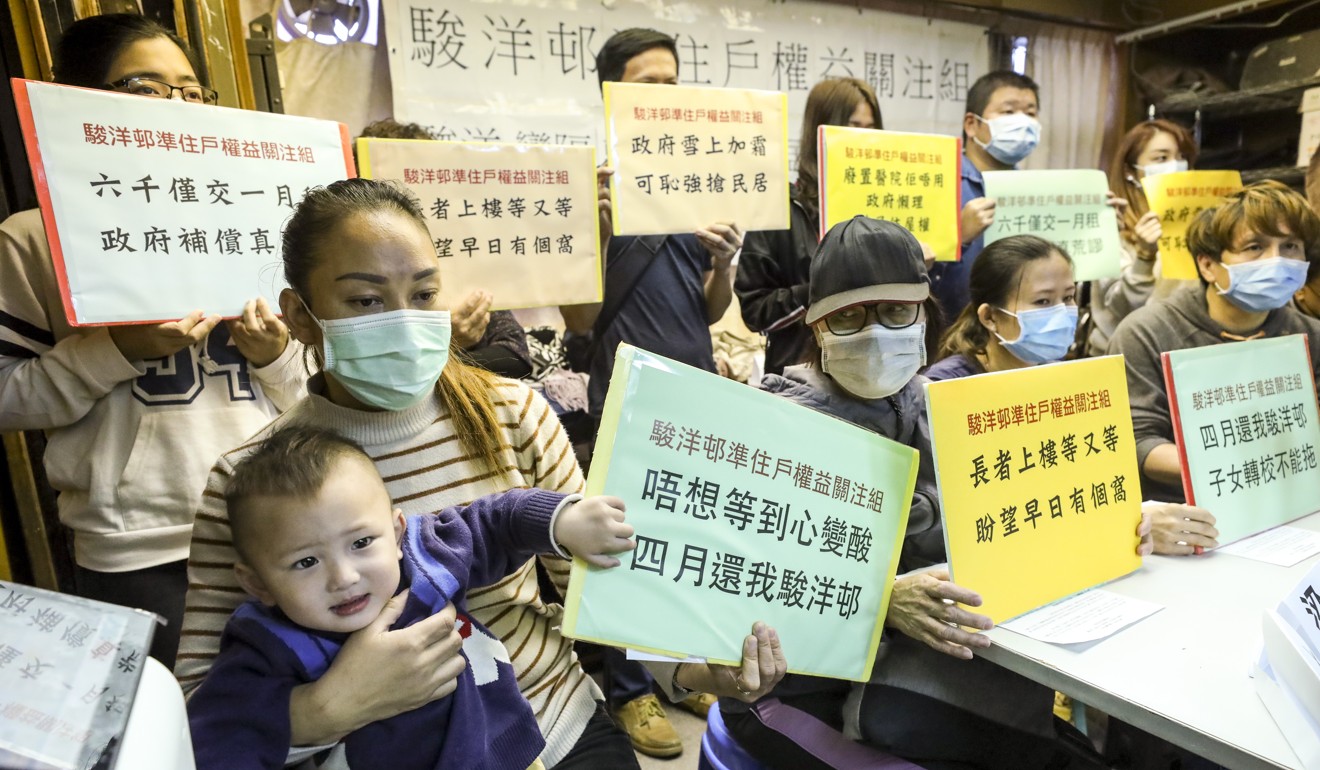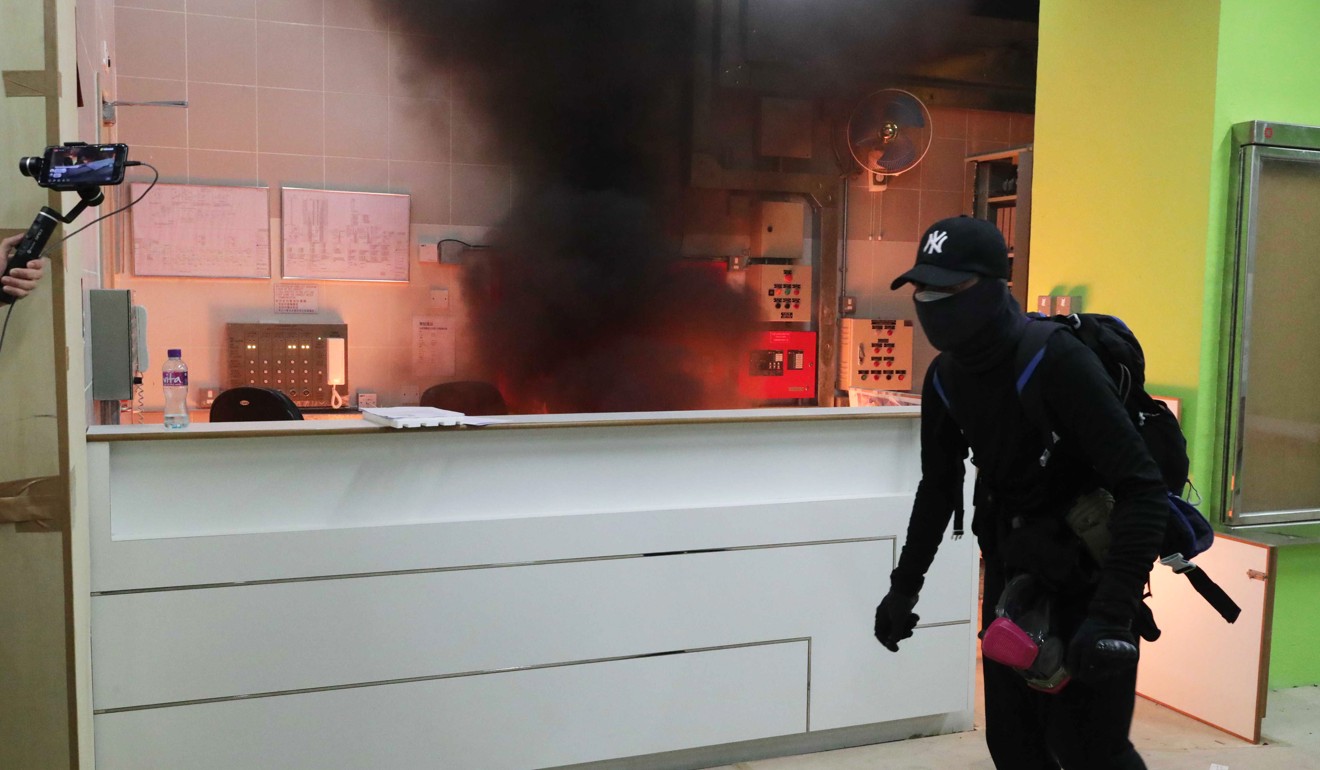
Coronavirus: Hong Kong families awaiting public housing flats taken for quarantine say delay has real-life consequences
- New alliance of low-income families describes financial pressure, difficulty in making plans while promised flats remain in Covid-19 limbo
- An internal Housing Department study shows only a small percentage of affected families agreed to accept flats in other neighbourhoods
Just 15 per cent of the 4,670 families who have seen their public housing dreams delayed by the government’s quarantine needs are willing to move elsewhere, a new internal study shows, while discontent about disruptions to their already hard-hit livelihoods is growing.
On Wednesday, a newly formed alliance representing 30 low-income families awaiting flats in Chun Yeung Estate in Fo Tan – now the city’s fifth quarantine facility – held a press conference to air their grievances.
Some blamed the government for extending the financial burden of paying market rental prices, while others detailed difficulties in making future plans for their families while stuck in limbo.

Chief Executive Carrie Lam Cheng Yuet-ngor announced in mid-February that the Fo Tan estate was “the only option” to serve as the city’s fifth quarantine site, even though 4,000 rental flats had already been allocated to people on the public housing waiting list in December.
Another 670 future residents of Fai Ming Estate in Fanling, were also affected, after the site was requisitioned by the government in January to serve as a quarantine centre. A protest that saw parts of the estate set ablaze with Molotov cocktails, ultimately led to the plan being abandoned, though the fire damage means no one has yet moved in.
Questionnaires sent earlier by the Housing Authority to all 4,670 residents of the two estates asked for their preference in near-term housing choices.
Sources from the authority told the Post that 3,920, about 85 per cent, of respondents chose to wait out the coronavirus crisis to claim their flats at Chun Yeung Estate. Only 270 of that group chose to accept temporary housing in far away Tuen Mun while they wait.
The remaining 750 agreed to relocation at estates in other areas.
Just how long Chun Yeung Estate will be used for quarantine purposes is unknown given the mercurial nature of the epidemic. The five block development in Fo Tan has taken in large batches of residents returning from overseas as well as those who had been trapped in Wuhan province, epicentre of the coronavirus outbreak on the mainland, government sources said.
Would-be residents of Fai Ming Estate, meanwhile, will have to wait until sometime later this year to move in, the sources said, as vandalised lifts, alarms and security systems need to be repaired.
The lack of a clear timetable for Chun Yeung Estate, in particular, has left many agitated.

“Our family is paying HK$10,000 monthly to rent a private flat currently,” said 54-year-old Li Wai-mang, a taxi driver and father of two. “Given the current epidemic situation, my income has been affected, and I can hardly afford the expensive rent.”
He said his family had already been waiting for a public housing flat for seven years and their plans had been seriously affected by the last-minute decision to use it for quarantine.
Another woman, who gave her surname as Lee, said she was uncertain if she should try to find a school for her child in the neighbourhood or not.
“If we are allowed to move into the new flat, I need to start finding a new school for my child in April so that he can transfer to another school for the new term in September,” she said. “Now I just don’t know what to do.”
Torey Yiu, a spokeswoman for the Concern Group of the Rights of Chun Yeung Estate Residents, the new organisation that has the residents’ cause, said she hopes the government could provide rental subsidies beyond the one-time HK$6,000 subsidy promised in the government’s coronavirus relief package. That amount, she said, was enough for just one month’s rent.
The Post has contacted the Housing Department for comment.

